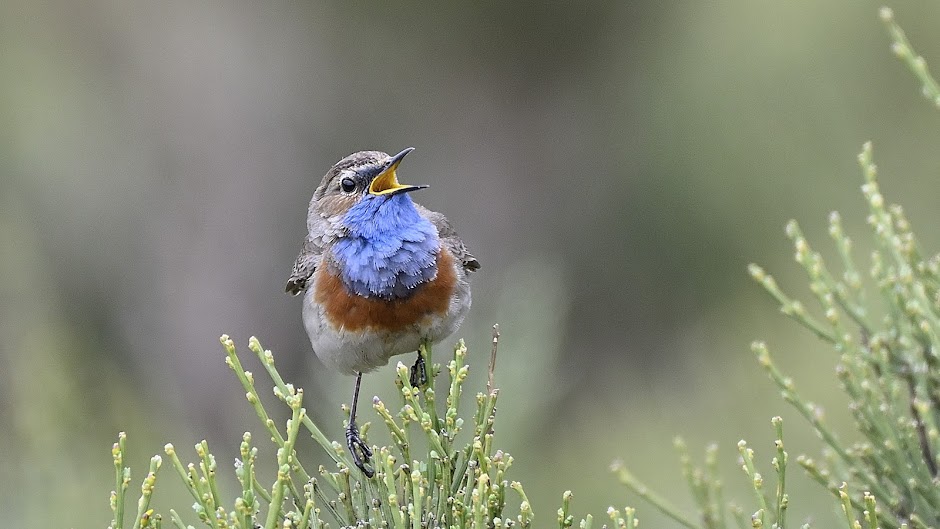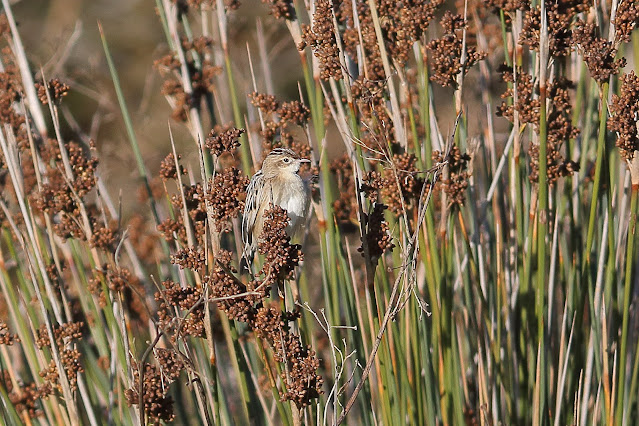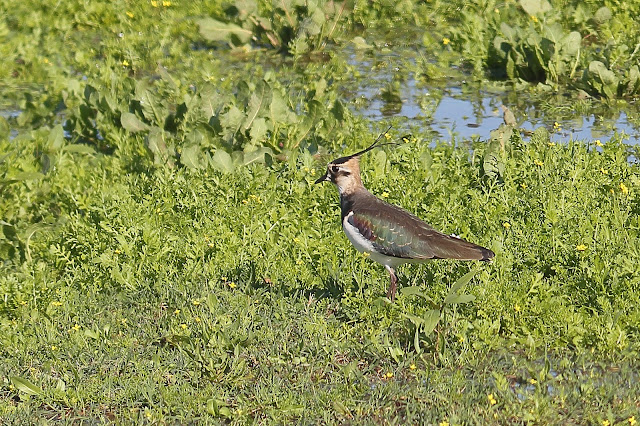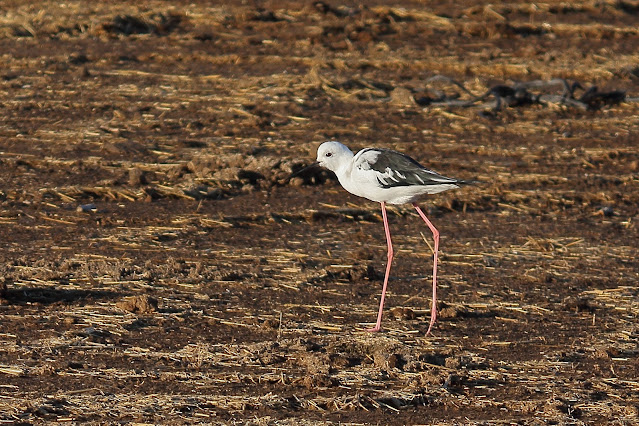Hola una vez más.
Hi again.
En el siguiente enlace podéis ver nuestros próximos viajes fotográficos y de observación de aves y mamíferos nacionales y al extranjero. Espero que os gusten y os animéis a venir conmigo. Una experiencia que nunca olvidareis.
In the following link you can see our next national and foreign Birds and Mammals photographic and observation trips. I hope you like them and I encourage you to come with me. An experience that you will not forget.
En esta ocasión os muestro algunas de las aves que se pueden ver y fotografiar en el viaje programado del 1 al 3 de diciembre a las Marismas del Odiel, Doñana y Brazo del Este.
On this occasion I show you some Birds that can be seen and photographed in the scheduled trip from December 1 to 3 to the Odiel Marshes, Doñana and Brazo del Este.
Nuestro primer destino fue el Paraje Natural de las Marismas del Odiel.
Our first destination was the Paraje Natural de las Marismas del Odiel.
El tiempo estuvo regular pues aunque no llovía hacia algo de viento y estuvo caso todo el tiempo nublado.
The weather was so so because even though it wasn't raining, it was somewhat windy and it was mostly cloudy.
Durante uno de nuestros paseos pudimos ver varias pagazas piquirrojas (Hydroprogne
caspia).
During one of our walks we were able to spot several Caspian Tern.
Arriba a la izquierda hay tres charranes patinegros (Thalasseus
sandvicensis). Las gaviotas más grandes son picofinas (Chroicocephalus
genei) y las más pequeñas gaviotas reidoras (Chroicocephalus
ridibundus). Estás últimas, tienen una mancha negruzca detras del ojo para que os sea más fácil su ientificación.
The largest gulls are Slender-billed Gulls and the smallest Black-headed Gulls. The latter, have a blackish spot behind the eye to make it easier to identify them.
Había muchísimas agujas colipintas (Limosa lapponica).
There were many Bar-tailed
Godwit.
Entre ellas había dos correlimos gordos (Calidris
canutus) que no vi en su momento pero al convertir las fotos han aparecido.
Among them were two Red Knot that I didn't see at the time but when I converted the photos they appeared.
Siempre me llama la atención lo elegante y bonitos que son los flamencos comunes (Phoenicopterus
ruber).
I am always struck by how elegant and pretty the Greater
Flamingos are.
También había un buen número de tarros blancos (Tadorna
tadorna).
There were also several Common Shelducks.
Vuelvepiedras común (Arenaria
interpres).
Ruddy Turnstone.
Correlimos menudo (Calidris
minuta).
Little
Stint.
Los más abundantes de los correlimos eran los comunes (Calidris
alpina).
Dunlin.
Correlimos tridáctilo (Calidris
alba).
Sanderling.
Cuando la marea subió, los limícolas estaban en la vegetación descansando después de haber comido. En la foto el ave más abundante son los archibebes comunes (Tringa
totanus). En el centro y en primer término una aguja colipinta (Limosa lapponica). A continuación os los enseño las otras dos especies que se pueden ver en la foto para que os sea más fácil distinguirlas.
When the tide was high, Waders were in the vegetation resting after eating. In the photo the most abundant Bird is the Common Redshank. In the center and in the foreground a Pin-tailed Godwit. Below I show you the other two species that can be seen in this photo so that you can distinguish them.
Zarapito real (Numenius
arquata).
Eurasian Curlew.
Y archibebes claros (Tringa nebularia).
And Greenshank.
También había chorlito gris (Pluvialis squatarola).
There was also Grey Plover.
Un grupo de espátulas comunes (Platalea
leucorodia).
A flock of Eurasian
Spoonbill.
En la playa del Espigón Juan Carlos I, había bastantes gaviotas sombrías (Larus fuscus) y tan solo dos gaviotas patiamarillas (Larus
michahellis).
On the beach of Espigón Juan Carlos I, there were quite a few Lesser
Black-backed Gull and only two Yellow-legged
Gull.
Un bonito atardecer en la playa.
A beautiful sunset on the beach.
Al día siguiente empezamos la jornada pajarera en El Rocío.
The next day we started the the bird day in El Rocío.
El Santuario de Nuestra Señora del Rocío.
The Sanctuary of Nuestra Señora del Rocío.
En el Charco de la Roca había bastante agua y aves. En la foto una avefría europea (Vanellus
vanellus).
In the Charco de la Roca there was plenty of water and birds. In the photo a Northern
Lapwing.
Morito común (Plegadis
falcinellus).
Glossy
Ibis.
Cigüeñuela común (Himantopus
himantopus).
Black-winged
Stilt.
Macho de tarabilla europea (Saxicola rubicola).
Common
Stonechat male.
Cucharas comunes (Spatula
clypeata).
Northern
Shoveler.
Aguja colinegra (Limosa
limosa).
Black-tailed
Godwit.
Ánade rabudo (Anas acuta) macho.
Northern Pintail male.
Agachadiza común (Gallinago
gallinago).
Common
Snipe.
Cistícola buitrón (Cisticola
juncidis).
Zitting
Cisticola.
Ánsares comunes (Anser
anser).
Greylag
Geese.
Garceta común (Egretta
garzetta).
Little
Egret.
And this beautiful male of European Goldfinch.
Y un grupo de grullas comunes (Grus grus).
Después hicimos una breve visita al Centro de Visitantes La Rocina. En la foto unos flamencos comunes (Phoenicopterus
ruber).
Afterwards we made a brief visit to the La Rocina Visitor Center. In the photo Greater
Flamingo.
Cercetas común (Anas
crecca). Había más aves pero muy lejos para sacarles fotos.
Common Teal. There were more birds but too far away to take photos.
En el camino de ida hasta la Laguna de la Dehesa de Abajo, pudimos observas a esta gaviota cana (Larus
canus).
On the way to the Dehesa de Abajo Lagoon, we were able to observe this Common
Gull.
En el mismo prado encharcado en donde estaba la gaviota, había bastantes avefrías europeas (Vanellus
vanellus).
In the same puddled meadow where the gull was, there were quite a few Northern
Lapwing.
Almorzamos junto a la laguna de Dehesa de abajo. Este año había más aguan y aves que en años anteriores.
We had lunch next to the Dehesa de Abajo. This year there were more water and Birds than in previous years.
Flamencos comunes (Phoenicopterus
ruber) descansando.
Greater
Flamingos resting.
Las avefrías europeas (Vanellus
vanellus) levantaban el vuelo cada vez que un aguilucho lagunero occidental (Circus
aeruginosus).
Northern
Lapwing took flight whenever a Western Marsh Harrier passed nearby.
Nunca había visto tantas cercetas pardillas (Marmaronetta
angustirostris) juntas. Había muchísimas para ser un ave mu escasa en la península ibérica.
I have never seen so many Marbled Teal together. There were many of them for a very scarce Bird in the Iberian Peninsula.
Cigüeñuelas comunes (Himantopus
himantopus).
Black-winged
Stilt.
Cigüeña blanca (Ciconia
ciconia).
White
Stork.
En el centro de la imagen, un pequeño grupo de avocetas comunes (Recurvirostra
avosetta).
In the center of the photo, a small group of Pied Avocet.
También pudimos ver algunos tejedores cabecinegros (Ploceus
melanocephalus). Esta es una especie invasora que es originaria de África.
We were also able to see some Black-headed Weavers. This is an invasive species that is native to Africa.
Por la tarde, continuamos nuestro recorrido hacia el Centro de Interpretación del Parque Nacional de Doñana José Antonio Valverde. En los carriles de acceso pudimos observar varias garcetas grandes (Egretta
alba).
In the afternoon, we continue our tour to the Interpretation Center of the José Antonio Valverde Doñana National Park. In the access lanes we were able to observe several Great
White Egret.
Había un grupo de 13 cigüeñas negras (Ciconia
nigra).
There was a group of 13 Black Storks.
Gorriones morunos (Passer
hispaniolensis).
Spanish
Sparrows.
En la visita al centro pudimos ver bastantes aves pero bastante lejos para sacar fotos. Solo saqué dos especies. Una es esta agachadiza común (Gallinago
gallinago).
During the visit to the center we were able to see quite a few birds but quite far away to take photos. I only took two species. One is this this Common Snipe.
Y la segunda estas avocetas comunes (Recurvirostra
avosetta).
And the seond one these Pied Avocets.
Luego continuamos hasta la Cancela de la Escupidera. En una charca ganadera había bastantes aves.En la parte de la derecha de la foto dos archibebes oscuros (Tringa
erythropus). A la izquierda una cigüeñuela común (Himantopus
himantopus).
Then we continue to the Cancela de la Escupidera. In a livestock pond there were quite a few Birds. On the right side of the photo are two Spotted
Redshank. On the left is a Black-winged
Stilt.
Esta cigüeñuela común ((Himantopus himantopus) sufre una aberración cromática que se denomina leucismo. En este caso se trata de leucismo parcial.
This Black-winged Stilt suffers from a chromatic aberration called leucism. In this case it is partial leucism.
Las aves con patas grisáceas son archibebes claros (Tringa nebularia).
Birds with grayish legs Greenshank.
Andarríos bastardo (Tringa glareola).
Wood
Sandpiper.
Andarríos grande (Tringa
ochropus).
Green
Sandpiper.
Y para finalizar la jornada hicimos una espera en las charcas que hay cerca del Centro de Interpretación para ver la entrada de los ánsares comunes (Anser
anser).
And to end the day we waited in the ponds near the Interpretation Center to see the arrival of the Greylag Geese.
Entraron muy pocos aunque se oían bastantes a lo lejos. Igual este día habían llegado antes.
Very few came although they could be heard quite a bit in the distance. Maybe this day they had arrived earlier.
El último día del viaje empezamos con una visita a la Laguna de Fuente del Rey. Había muchos martinetes comunes (Nycticorax
nycticorax).
The last day of the trip we started with a visit to the Fuente del Rey Lagoon. There were many common Black-crowned
Night Herons.
Este es un juvenil.
This is a juvenile.
Macho de ánade friso (Anas
strepera).
Gadwall male.
Garceta común (Egretta
garzetta).
Little
Egret.
Morito común (Plegadis
falcinellus).
Glossy
Ibis.
Avocetas comunes (Recurvirostra
avosetta).
Pied Avocets.
Cucharas comunes (Spatula
clypeata) y dos cercetas comunes (Anas
crecca), las más pequeñas.
Northern
Shoveler and two Common teals.
Un escondido calamón común (Porphyrio
porphyrio).
A hidden Purple Gallinule.
Y este macho de cigüeñuela común (Himantopus
himantopus).
And this male Black-winged
Stilt.
Después fuimos hasta e cercano Brazo del Este. Nada más llegar, vimos a esta águila calzada (Aquila
pennata) morfo claro. Al final salieron volando dos ejemplares ambos del mismo morfo.
Then we went to the nearby Brazo del Este. As soon as we arrived, we saw this pale morph Booted Eagle. In the end two specimens flew out, both of the same morph.
Andarríos chico (Actitis
hypoleucos).
Common
Sandpiper.
Bastantes tejedores cabecinegros (Ploceus
melanocephalus).
Many Black-headed
Weaver.
Algunas cigüeñas blancas (Ciconia
ciconia). La verdad es que había muchas menos aves que de costumbre. Igual fue debido a que durante el verano no se sembraron los arrozales por falta de agua.
Some White Storks. The truth is that there were many fewer Birds than usual. Maybe it was because during the summer the rice fields were not planted due to lack of water.
Calamón común (Porphyrio
porphyrio). Recuerdo cuando no hace mucho tiempo se podían ver cientos. Que pena.
Purple Gallinule. I remember when not long ago you could see hundreds. What a pity.
Avefrías europeas (Vanellus
vanellus).
Northern
Lapwing.
And some Common Cranes.
Si queréis suscribiros a este blog de los viajes que hacemos pincha en el siguiente enlace: Suscribirse y haz clic en ¿ Quieres suscribirte a nuestro blog?
If you want to subscribe to this post about the trips we do, click on the following link: Susbcribe and click on: Do you want to subscribe to our blog?
Y para finalizar os dejo con este recuerdo de nuestra visita al Brazo del Este.
And to finish I leave you with this memory of our visit to the Brazo del Este.
And to finish I leave you with this memory of our visit to the Brazo del Este.
Si queréis suscribiros a este blog de los viajes que hacemos pincha en el siguiente enlace: Suscribirse y haz clic en ¿ Quieres suscribirte a nuestro blog?
If you want to subscribe to this post about the trips we do, click on the following link: Susbcribe and click on: Do you want to subscribe to our blog?
Espero que os haya gustado y hasta pronto.
I hope you like it and see you soon.

















































































No hay comentarios:
Publicar un comentario